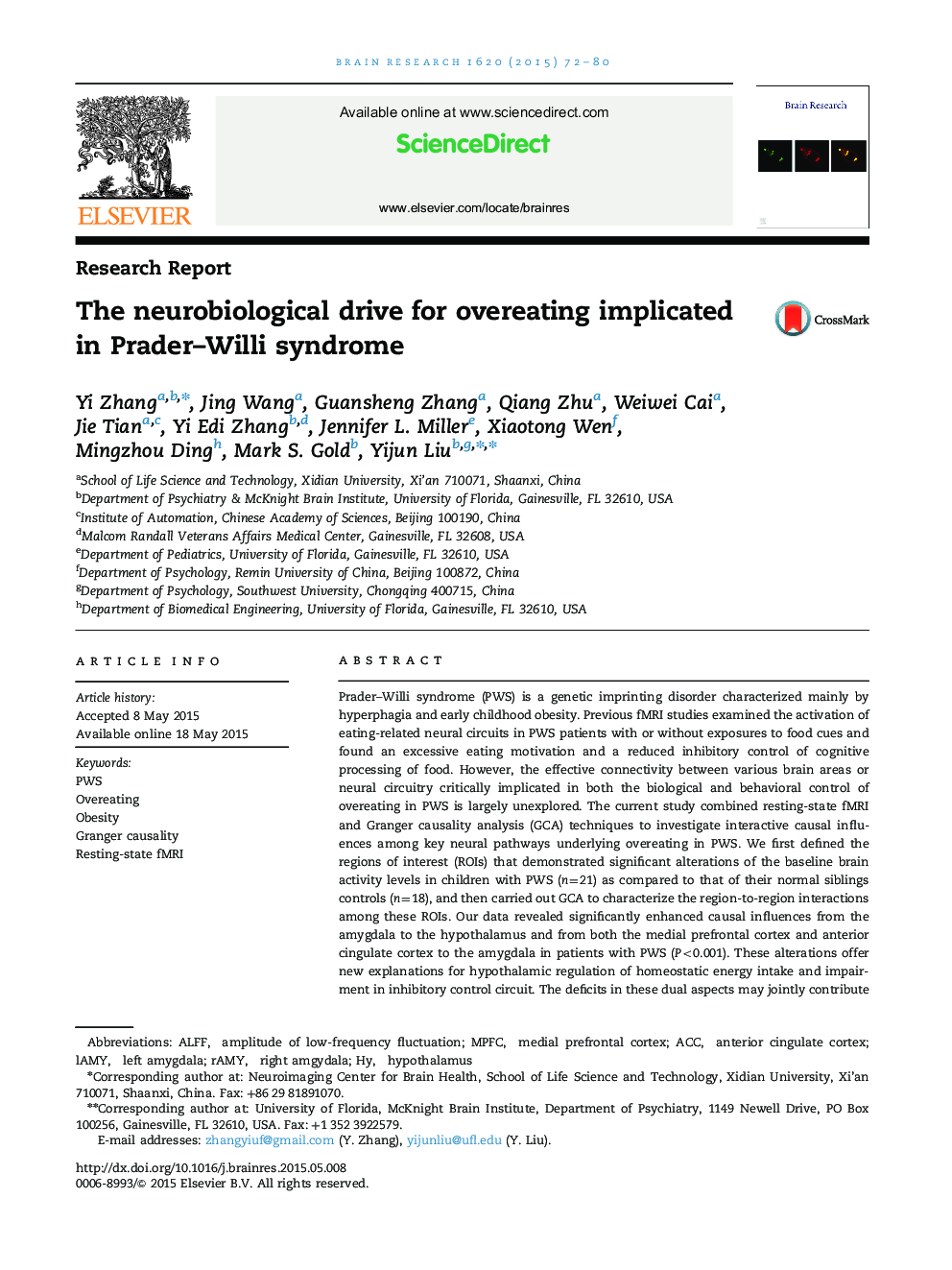| کد مقاله | کد نشریه | سال انتشار | مقاله انگلیسی | نسخه تمام متن |
|---|---|---|---|---|
| 6262976 | 1613819 | 2015 | 9 صفحه PDF | دانلود رایگان |

- We investigate the interactions among neural pathways underlying overeating in PWS.
- Enhanced causal influence from the amygdala to the hypothalamus in PWS.
- Increased causal influences from the MPFC and ACC to the amygdala in PWS.
- Hypothalamic deregulation of energy intake and impairment in inhibitory control in PWS.
- Deficits in the dual aspects may jointly contribute to the extreme hyperphagia in PWS.
Prader-Willi syndrome (PWS) is a genetic imprinting disorder characterized mainly by hyperphagia and early childhood obesity. Previous fMRI studies examined the activation of eating-related neural circuits in PWS patients with or without exposures to food cues and found an excessive eating motivation and a reduced inhibitory control of cognitive processing of food. However, the effective connectivity between various brain areas or neural circuitry critically implicated in both the biological and behavioral control of overeating in PWS is largely unexplored. The current study combined resting-state fMRI and Granger causality analysis (GCA) techniques to investigate interactive causal influences among key neural pathways underlying overeating in PWS. We first defined the regions of interest (ROIs) that demonstrated significant alterations of the baseline brain activity levels in children with PWS (n=21) as compared to that of their normal siblings controls (n=18), and then carried out GCA to characterize the region-to-region interactions among these ROIs. Our data revealed significantly enhanced causal influences from the amygdala to the hypothalamus and from both the medial prefrontal cortex and anterior cingulate cortex to the amygdala in patients with PWS (P<0.001). These alterations offer new explanations for hypothalamic regulation of homeostatic energy intake and impairment in inhibitory control circuit. The deficits in these dual aspects may jointly contribute to the extreme hyperphagia in PWS. This study provides both a new methodological and a neurobiological perspective to aid in a better understanding of neural mechanisms underlying obesity in the general public.This article is part of a Special Issue entitled 1618.
Journal: Brain Research - Volume 1620, 16 September 2015, Pages 72-80